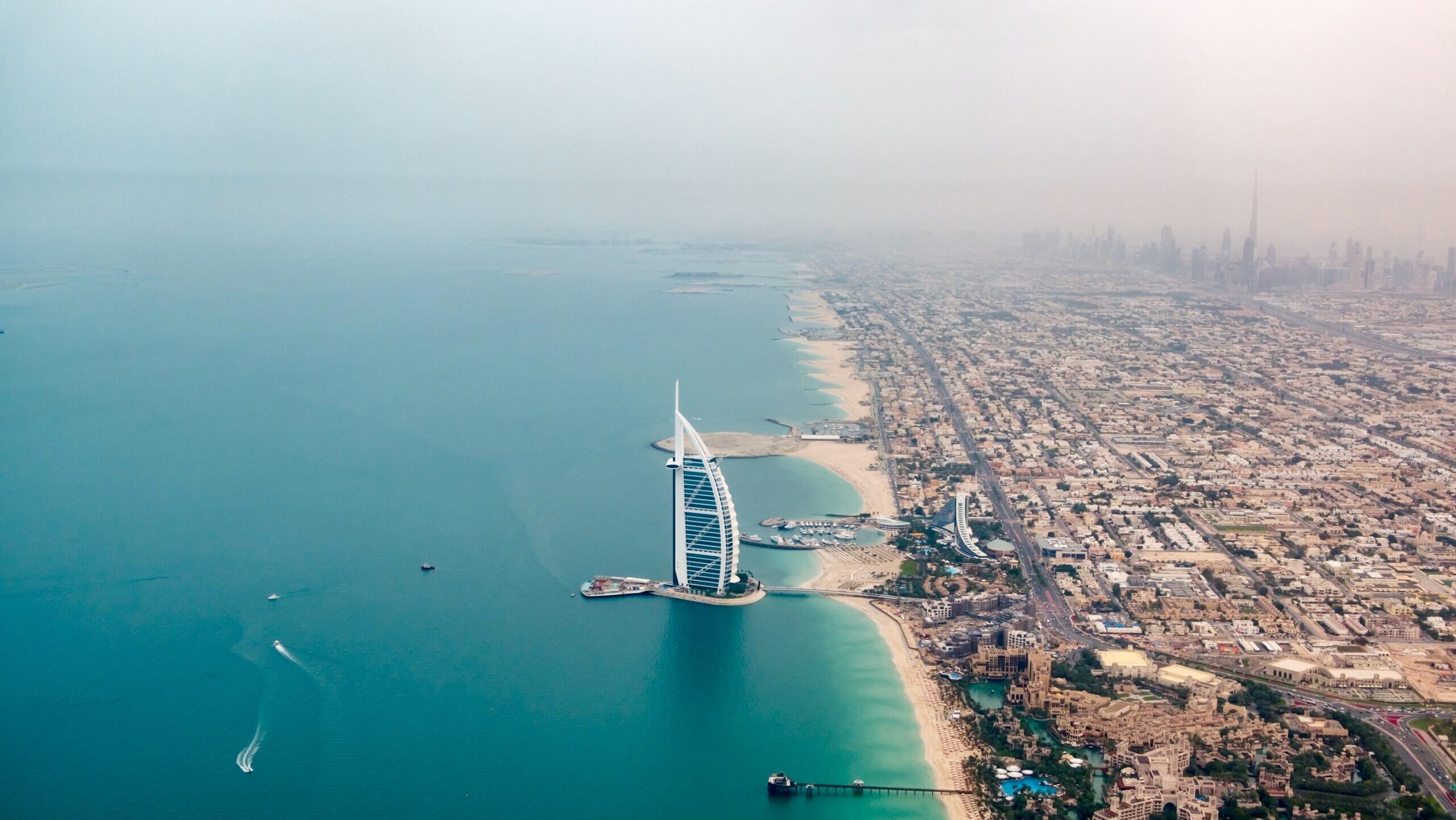COP28: Early Signs of Progress Despite Controversies
The annual COP (Conference of the Parties) summits are the focal point of international climate diplomacy, yet many feel they are being fundamentally undermined. COP28, currently underway in Dubai, has been particularly controversial even before it got started – but despite these controversies, there is hope that significant progress could be made in some important negotiations.
COP28 Goals
Every COP tends to focus on some specific agenda items, and COP28 is no different. The COP Presidency has organised the conference to focus on the following:
- a global stocktake
- the mitigation work programme
- the global goal on adaptation
These are some essential and often quite specific agenda items for accelerating the world’s work on climate change mitigation and adaptation. Each is explored in more detail below.

COP28 is being held in Dubai, the UAE’s most populous city. The UAE is one of the world’s top-ten oil-producing nations. Photo from Unsplash.
A global stocktake
COP28 will be the first time that each of the 196 nations that signed the Paris Agreement back at COP21 in 2016 will report how they are faring against their national climate commitments. At COP28, a draft text on this matter highlights a “narrowing window” of opportunity to take the action needed, saying nations are “not collectively on track to achieve the goals of the Paris Agreement”.
However, there is hope that this stocktake will provide the visibility and leverage needed to encourage nations to accelerate their actions and make stronger commitments from 2025 onwards. The stocktake will highlight the need for systemic transformations throughout society, to build and maintain a trajectory of climate mitigation alongside equity and justice for all.
Mitigation work programme
The Sharm El-Sheikh Mitigation Ambition and Implementation Work Programme (MWP) aims to be an opportunity for nations to collectively find ways to upscale mitigation efforts. The MWP’s annual report, published in November, summarises progress in lead-up events prior to COP28. One significant point of progress is the massive 70% surge in renewable energy investment last year, but now that needs to be matched with rapid large-scale deployment – with a special focus on supplying the Global South, which is still suffering from lack of investment in such new infrastructure.
Carbon capture and utilisation (CCU) and carbon capture and storage (CCS) solutions, which are ramping up in several nations, were also discussed. While the technology is promising, there are barriers to large-scale deployment, and some feel they may shift the focus away from renewable energy, delaying progress on the energy transition. Other discussions covered transport systems, and the global need to shift towards public transport powered by alternative fuels or electricity.
Adaptation, climate finance, and loss and damage
Adaptation efforts focus on making society and communities more able to tolerate the effects of climate change that are already locked in. Who pays for adaptation measures is a thorny question. It’s generally agreed that developed nations, those who are most responsible for causing climate change, should contribute the most, but previous targets to help finance developing nations with their efforts have been missed. Making a more watertight funding model will be a core focus of this COP.
Yet in terms of payments for loss and damage – that is, paying vulnerable nations for now-unavoidable climate-instigated destruction – the COP has already made surprising progress.Countries agreed to a new fund to help vulnerable nations weather climate risks, but many are concerned about the role of the World Bank as interim manager of this fund. The World Bank’s board principally comprises people from wealthy countries, which could lead to developed nations being favoured when it comes to supplying funds. Much of the funding will also be supplied as loans rather than grants, which could only increase developing countries’ national debts.
Progress despite controversies?
The decisions made in the run-up to COP28 have led to plenty of pessimism from those urging action on climate change. The choice of the United Arab Emirates, one of the world’s top ten producers of oil and gas, sparked concern – and the appointment of Sultan al-Jaber, the head of the UAE’s biggest oil and gas company, to lead the COP caused even more outrage. These choices of a nation and President with clear economic interests in defending fossil fuels has led many to question the validity of COP, especially when more fossil fuel lobbyists than ever are in attendance.
However, the early days of COP28 itself have given cause for hope. Progress has already been made on agenda items such as the loss and damage fund, and it’s likely that more is to come. While progress might be checked by the strong presence and influence of fossil fuel interests, the global drive for change is stronger than ever – both in the debating chambers and in communities themselves.
Related
King Charles @COP28 World heading for dangerous uncharted territory
About the Author: Jacob Ashton
POPULAR
COMMENTS
- The risk with the path to a hothouse Earth | Climate State on Climate Tipping Points Existential Threat to Our Life Support Systems
- Robert Schreib on Electricity generation prices may increase by as much as 50% if only based on coal and gas
- Robert Schreib on China made a historic commitment to reduce its emissions of greenhouse gases
- Lee Nikki on COP30: Climate Summit 2025 – Intro Climate Action Event
- Hollie Bailey on Leaders doubled down on fossil fuels after promising to reduce climate pollution
[…] COP28: Early Signs Of Progress Despite Controversies https://climatestate.com/2023/12/04/cop28-early-signs-of-progress-despite-controversies/ […]